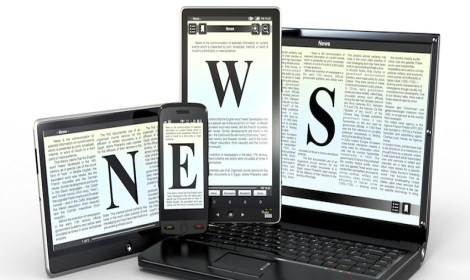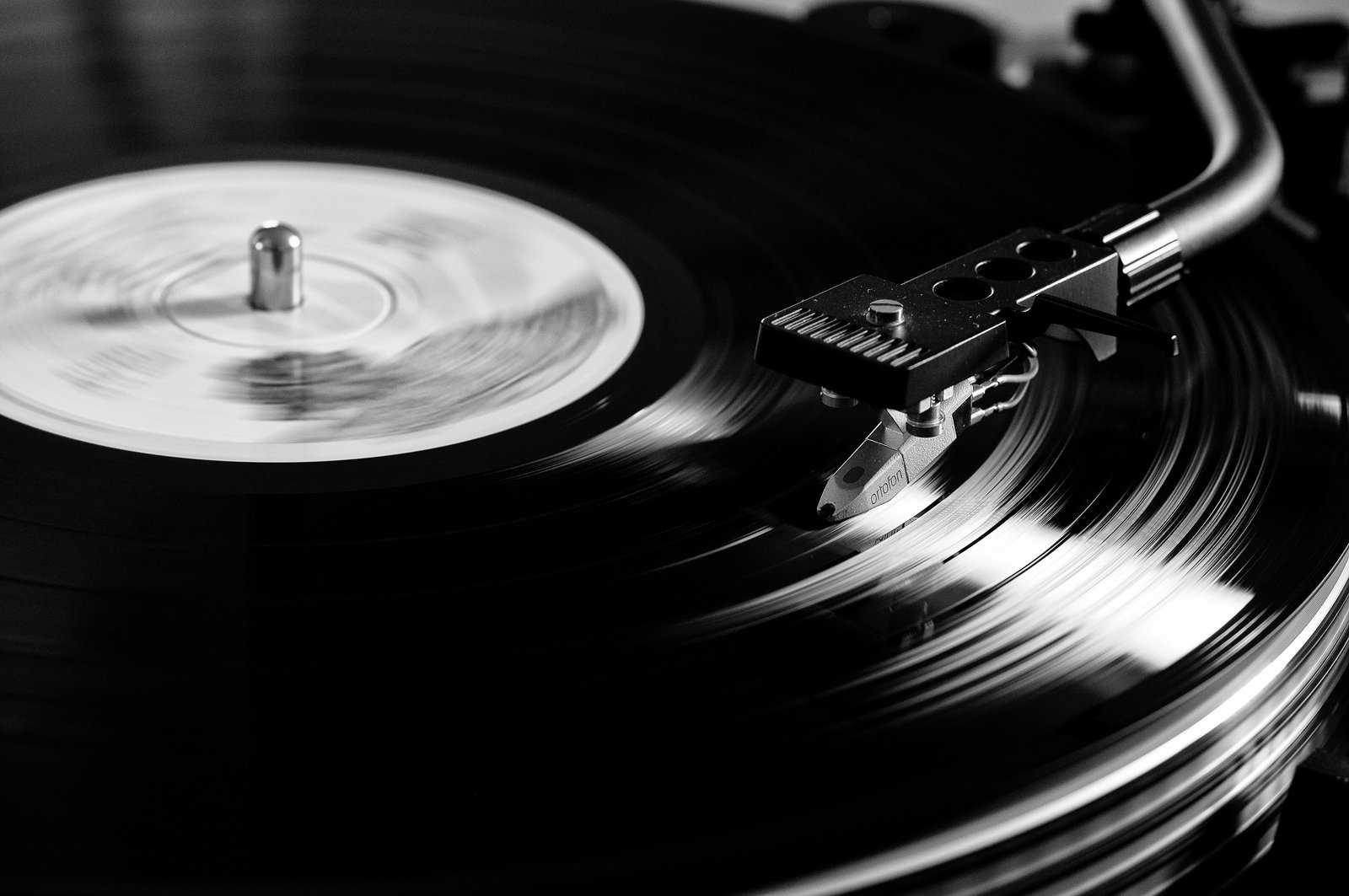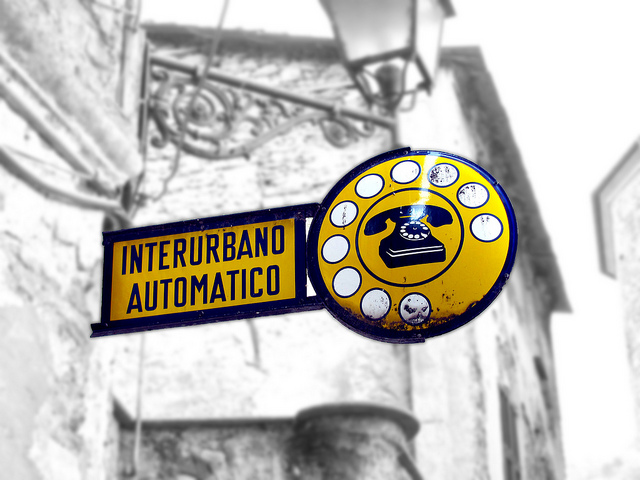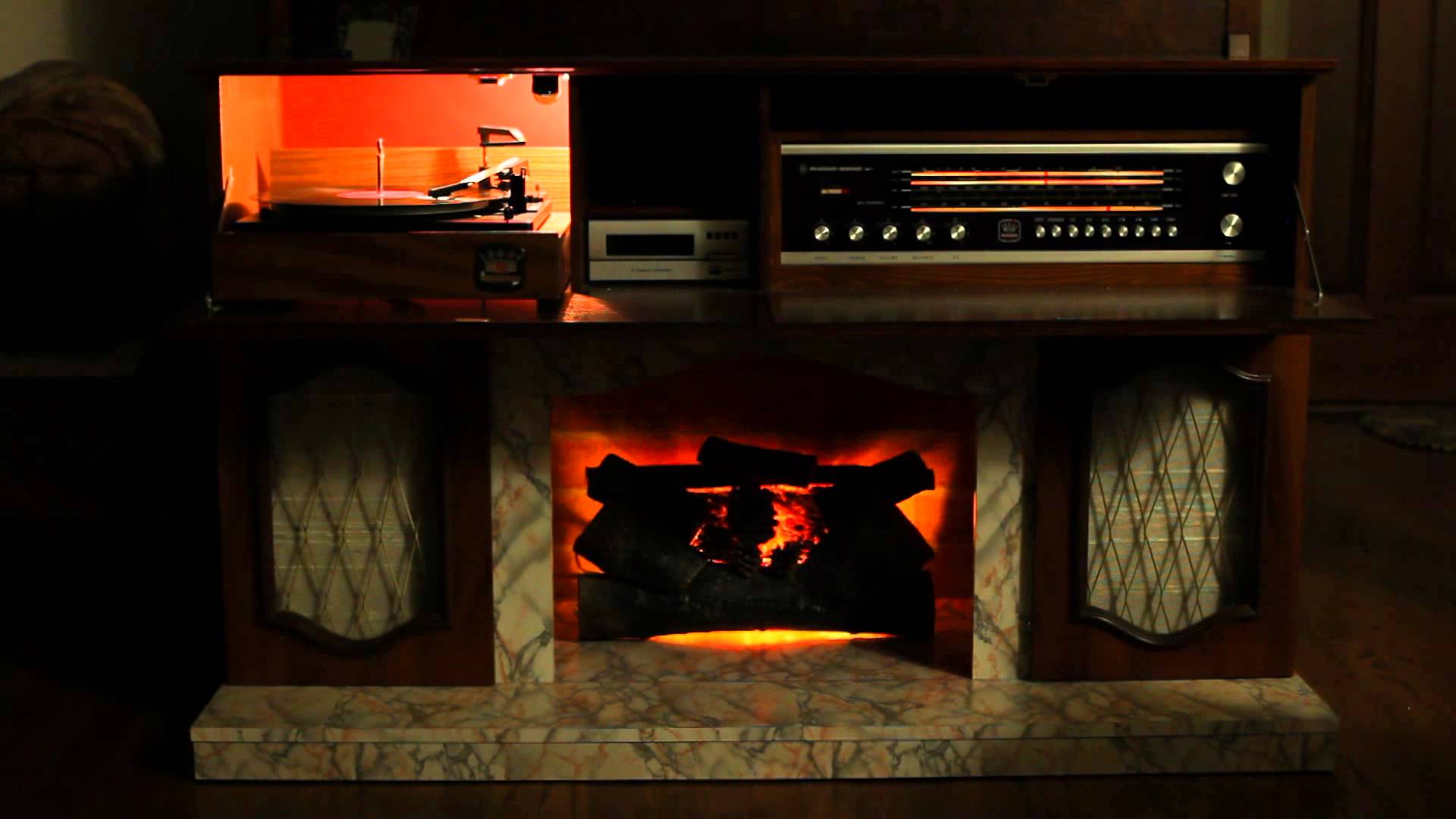 The vinyl record boom of the latest years is often explained as an acknowledgement by new and old fans of the superior sound quality of the analog medium over the digital one. Many do not even imagine how well can a vinyl record sound, though we should make clear what kind of digital we are talking about. But that is not the point. Vinyl’s charm is completely different. It has now become a matter of fashion, following the attraction for “vintage” that many have now, as if modern times were less attractive than the past; it’s as if the objects that remind us of a time gone appear more and more desirable. But there’s more to it…
The vinyl record boom of the latest years is often explained as an acknowledgement by new and old fans of the superior sound quality of the analog medium over the digital one. Many do not even imagine how well can a vinyl record sound, though we should make clear what kind of digital we are talking about. But that is not the point. Vinyl’s charm is completely different. It has now become a matter of fashion, following the attraction for “vintage” that many have now, as if modern times were less attractive than the past; it’s as if the objects that remind us of a time gone appear more and more desirable. But there’s more to it…
 I already wrote about it: modern times are characterized by digital technology, so convenient and amazing, certainly useful to carry out many tasks, but also a source of stress for sure. Being available on call at any moment has become normal, necessary. Can you imagine spending an entire day without a cell phone? Don’t you feel a certain lightness at the mere thought? A sense of freedom we lost many years ago. This is just one example. Being connected 24 hours a day means being flooded by an information flow that can be suffocating. How much time do we spend to keep up to date with what happens daily on the social networks we use? I use them also as news collectors by subscribing to newspaper and science websites updates and other things of my interest. Keeping up wth the huge mass of information available in such a way can become a job of its own. It is without any doubt a source of stress, one that we did not experience years ago. Who had a cell phone in the late 80s? Who was connecting to the Internet in mobility at the beginning of the 2000s? No one had a home computer in the 70s (not even in the 80s). Besides paying bills that did not exist before, thanks to digital technology we have a lot more tasks to carry out daily, we are instantly available but I don’t think we feel much better.
I already wrote about it: modern times are characterized by digital technology, so convenient and amazing, certainly useful to carry out many tasks, but also a source of stress for sure. Being available on call at any moment has become normal, necessary. Can you imagine spending an entire day without a cell phone? Don’t you feel a certain lightness at the mere thought? A sense of freedom we lost many years ago. This is just one example. Being connected 24 hours a day means being flooded by an information flow that can be suffocating. How much time do we spend to keep up to date with what happens daily on the social networks we use? I use them also as news collectors by subscribing to newspaper and science websites updates and other things of my interest. Keeping up wth the huge mass of information available in such a way can become a job of its own. It is without any doubt a source of stress, one that we did not experience years ago. Who had a cell phone in the late 80s? Who was connecting to the Internet in mobility at the beginning of the 2000s? No one had a home computer in the 70s (not even in the 80s). Besides paying bills that did not exist before, thanks to digital technology we have a lot more tasks to carry out daily, we are instantly available but I don’t think we feel much better.
Until the early 2000s, it was not easy to find someone using digital cameras. By the end of the first decade, cell phone cameras were widespread, allowing everybody to shoot pictures and videos at any instant. Today this is perfectly normal. Do we really enjoy them? I don’t know how much. It is not easy to manage the enormous quantity of image and video files we are able to generate today. How many do really save and organize them in order to watch them once in a while? Maybe it is more common to shoot pictures or videos so that we can publish them on social networks following today’s eagerness (or should I say anxiety?) to show the world what we’re doing.
All these digital activities require an enormous amount of time. Where do we find it? We take it off other activities, personal relationships, reading, movie watching, work, sleep… Yet more stress…
 Digital technology allows us bringing around tons of books and magazines in shape of eBooks or similar. No paper consuption, no unmanageable bulky volumes of paper, books, magazines, encyclopedias (who needs one now?). Reading from a digital display is not like reading from printed paper. It seems the light emitted from smartphone and tablet displays is rich of frequencies in the blue range, a typical color of sunrise, which signals our brains it is no time to go to sleep (as opposed to the reddish light of sunset). But more often we read while at bed, something that does not encourage sleeping (as a normal book would). More stress…
Digital technology allows us bringing around tons of books and magazines in shape of eBooks or similar. No paper consuption, no unmanageable bulky volumes of paper, books, magazines, encyclopedias (who needs one now?). Reading from a digital display is not like reading from printed paper. It seems the light emitted from smartphone and tablet displays is rich of frequencies in the blue range, a typical color of sunrise, which signals our brains it is no time to go to sleep (as opposed to the reddish light of sunset). But more often we read while at bed, something that does not encourage sleeping (as a normal book would). More stress…
 What about music? Who really listens to it? Actual music listening involves doing that and nothing else; it would mean total immersion, focusing on the feelings and emotions it conveys. Distracted listening, while we’re doing other taskes, while we’re around wearing earphones, while we’re driving in the city traffic, while we’re carrying out home cleaning duties, is definitely not the same. But we are too busy, we have narrow free time windows, we’re in such a hurry, deeply involved in our frantic digital world that we can’t possibly save half an hour for music listening and nothing else. Surely we find a way to slouch on the couch for some TV zapping.
What about music? Who really listens to it? Actual music listening involves doing that and nothing else; it would mean total immersion, focusing on the feelings and emotions it conveys. Distracted listening, while we’re doing other taskes, while we’re around wearing earphones, while we’re driving in the city traffic, while we’re carrying out home cleaning duties, is definitely not the same. But we are too busy, we have narrow free time windows, we’re in such a hurry, deeply involved in our frantic digital world that we can’t possibly save half an hour for music listening and nothing else. Surely we find a way to slouch on the couch for some TV zapping.
 For those reasons too, many are rediscovering the charm of vinyl records. A fascinating black record in your hands is uncomparable – the cover to be appreciated, the slowness of the gestures to make it play… Not comparable at all to the aseptic file within a playlist on a hard disk that we control from an app on our smartphone. Yes, managing files on a computer or cell phone is easier and faster, but I find this to be the real issue with digital. If my free hour with music (an LP is even shorter) means doing it all in a hurry anyway, if it means having a remote control to jump from a track to another, whether it is on hard disk or CD, what’s the use of it? The physical contact with the vinyl record brings our humanity back to us. It is made of certain rhythms, certain rites. We are surrounded by loads of fourth-rate quality music and sounds, starting from those coming out from the tinier and tinier loudspeakers in our ever narrowing flat TV panels.
For those reasons too, many are rediscovering the charm of vinyl records. A fascinating black record in your hands is uncomparable – the cover to be appreciated, the slowness of the gestures to make it play… Not comparable at all to the aseptic file within a playlist on a hard disk that we control from an app on our smartphone. Yes, managing files on a computer or cell phone is easier and faster, but I find this to be the real issue with digital. If my free hour with music (an LP is even shorter) means doing it all in a hurry anyway, if it means having a remote control to jump from a track to another, whether it is on hard disk or CD, what’s the use of it? The physical contact with the vinyl record brings our humanity back to us. It is made of certain rhythms, certain rites. We are surrounded by loads of fourth-rate quality music and sounds, starting from those coming out from the tinier and tinier loudspeakers in our ever narrowing flat TV panels.  Music is always compressed into less bulky files because the number of tracks we carry in our pockets is more inportant than their quality. Radio channels using lossless formats superior to the ubiquitous MP3 are very rare. Our ears have got used to this trash. They can’t even dream how good could music sound in a proper HiFi system (the stereophonic one, with only two loudspeakers, not multichannel as usual today – here too, quantity over quality). Slowly, some people rediscover the beauty in the rite, removing the record from its sleeve, cleaning it, placing it on the platter, cueing the needle on it waiting for the magic of music to happen.
Music is always compressed into less bulky files because the number of tracks we carry in our pockets is more inportant than their quality. Radio channels using lossless formats superior to the ubiquitous MP3 are very rare. Our ears have got used to this trash. They can’t even dream how good could music sound in a proper HiFi system (the stereophonic one, with only two loudspeakers, not multichannel as usual today – here too, quantity over quality). Slowly, some people rediscover the beauty in the rite, removing the record from its sleeve, cleaning it, placing it on the platter, cueing the needle on it waiting for the magic of music to happen.
The warmer vinyl sound compared to digital has nothing to do with that: there are “warm” recordings and “cold” recordings, just like there are cold valve amplifiers and warm solid-state amplifiers. The warm vinyl sound like the valve’s is just a myth.
There’s nothing weird in recording in the digital domain and then press both vinyl and CD records. The best sound is in the best recording. If it ends up on a vinyl record it will be the better listening; if it ends up on the CD this will be the best to listen to. Recording quality being equal, vinyl has a higher potential (if all information have been recorded): the better the stylus quality, the cartridge quality, the tonearm’s, the turntable’s, the rest of the system’s, more information will be retrieved from the groove, resulting in a better playback quality. A turntable is a clockwork system, it must be duly tuned, the stylus must be correctly aligned, the tonearm balanced and so on… The chances of maneuvering are many and surface noise can be reduced to zero. That’s where vinyl is superior (remember that digital has quantization noise). But digital technology in music is here to stay.
What should we do? This is the world we live in. It’s useless to reject it and behave as if certain things did not exist. That’s why, in my opinion, we need to resume contact with our true nature, something that digital technology takes away from us. Once in a while it is good for us to read a real book, as well as to watch a movie in a single-screen theater. Once in a while it would be nice to leave, forget our cell phone at home and go out for a walk.  On occasions I use film cameras to rediscover the correct relationship with a picture, the choice of the proper film roll, the reasoning before any shot, and waiting for a week before seeing the results. This is likely the main reason, maybe the deepest one, behind this “strange” vinyl come back. Maybe it is the need of finding out who we once were, how it was when to call home you had to find a payphone and insert the coins, when you took pictures while in vacation but didn’t know how (or if) they came out. Let’s rediscover the pleasure of putting a record on sitting down to listen to one side, then raising up to turn it around and listen to the other side – Human rhythms, which we all need sometimes. Who cares about surface noise? Life has surface noise…
On occasions I use film cameras to rediscover the correct relationship with a picture, the choice of the proper film roll, the reasoning before any shot, and waiting for a week before seeing the results. This is likely the main reason, maybe the deepest one, behind this “strange” vinyl come back. Maybe it is the need of finding out who we once were, how it was when to call home you had to find a payphone and insert the coins, when you took pictures while in vacation but didn’t know how (or if) they came out. Let’s rediscover the pleasure of putting a record on sitting down to listen to one side, then raising up to turn it around and listen to the other side – Human rhythms, which we all need sometimes. Who cares about surface noise? Life has surface noise…
 Lucio Cadeddu, editor of the online HiFi magazine I read avidly, once made a comparison that really stuck with me: digital and analog are like a radiator and a fireplace. The radiator warms you up, no problem, maybe even in a more efficient way: you turn it on and forget about it. But what about the way a fireplace can warm your heart?
Lucio Cadeddu, editor of the online HiFi magazine I read avidly, once made a comparison that really stuck with me: digital and analog are like a radiator and a fireplace. The radiator warms you up, no problem, maybe even in a more efficient way: you turn it on and forget about it. But what about the way a fireplace can warm your heart?